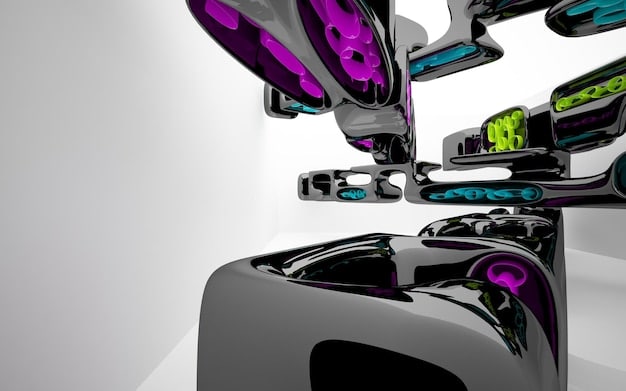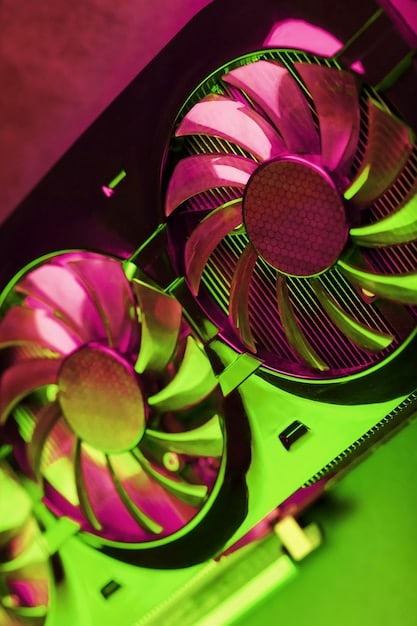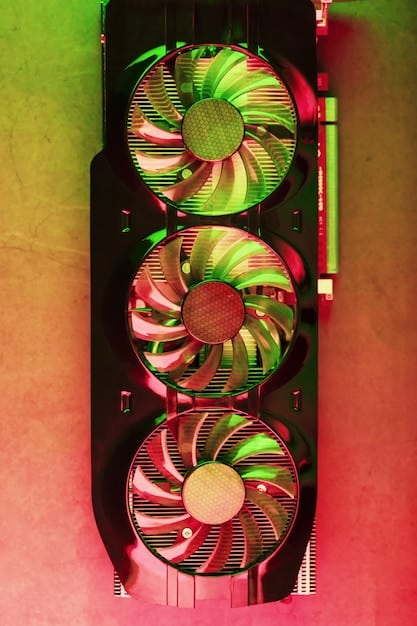Will the New Xbox Series X Refresh Unleash 15% More FPS in 2025?

Will the new Xbox Series X refresh boost frame rates by 15% in 2025? Speculation surrounds a potential Xbox Series X refresh in 2025, with rumors suggesting a focus on efficiency rather than a major performance leap, meaning a 15% frame rate boost is unlikely.
The gaming world is buzzing with rumors: Will the new Xbox Series X refresh boost frame rates by 15% in 2025? Is this just hype, or can we expect a significant performance upgrade that enhances our gaming experience?
Xbox Series X Refresh: What’s on the Horizon?
The Xbox Series X, since its launch, has been a powerhouse in the console market. As we look towards 2025, the question of a hardware refresh naturally arises. But what exactly does a “refresh” entail, and how might it impact performance?
Understanding Console Refreshes
A console refresh typically involves updating internal components, such as the CPU, GPU, or memory, to improve performance or efficiency. These refreshes are often released mid-cycle to keep the console competitive with newer hardware and technologies.
Rumors and Speculation
Currently, information about an Xbox Series X refresh is largely based on rumors and speculation within the gaming community. While Microsoft hasn’t officially announced anything, the industry is rife with predictions about what a potential refresh might bring.

Frame Rate Expectations: Realistically Speaking
The central question revolves around frame rates. Will a new Xbox Series X refresh boost frame rates by 15% in 2025? To answer that, we need to consider the current hardware capabilities and the likely scope of any potential upgrades.
Achieving a consistent 15% frame rate boost across all games is a tall order. Let’s break down the factors involved:
- Hardware Limitations: The existing Xbox Series X already pushes the boundaries of console technology. Significant performance gains would require substantial hardware upgrades.
- Game Optimization: Frame rates are heavily dependent on how well games are optimized for the console. Even with a hardware boost, poorly optimized games may not see significant improvements.
- Resolution and Settings: Higher resolutions and graphical settings demand more processing power. A 15% frame rate increase might only be noticeable at lower settings or resolutions.
Potential Hardware Upgrades in a Refresh
If Microsoft were to release an Xbox Series X refresh, certain hardware upgrades would be more likely than others. These upgrades could contribute to improved performance, though a 15% frame rate boost might be optimistic.
CPU and GPU Enhancements
A new CPU with improved clock speeds or architecture could provide a moderate performance boost. Similarly, an upgraded GPU with more processing units could enhance graphical capabilities.
Memory and Storage Improvements
Faster memory speeds or increased memory bandwidth could reduce loading times and improve overall system responsiveness. Upgrading to a faster NVMe SSD could also contribute to quicker game loading and smoother gameplay.
Potential storage and memory upgrades in a new Xbox Series X refresh:
- Faster RAM: Upgrading to faster DDR6 RAM could significantly improve data transfer speeds.
- Larger SSD: Including a larger internal SSD, perhaps 2TB or more, would accommodate more installed games.
- Optimized Storage Architecture: Enhancements to the storage architecture could further reduce loading times.

The Role of Software Optimization
Hardware isn’t the only factor determining frame rates. Software optimization plays a crucial role in maximizing performance on the Xbox Series X. Improved game engines and development tools can help developers squeeze more performance out of the existing hardware.
DirectStorage Technology
Microsoft’s DirectStorage technology, already available on PC, could be further optimized for the Xbox Series X. DirectStorage allows the GPU to directly access the NVMe SSD, bypassing the CPU and significantly reducing loading times.
Machine Learning and AI
Machine learning and AI techniques could be used to optimize game performance dynamically. For example, AI could adjust graphical settings in real-time to maintain a consistent frame rate without sacrificing visual quality.
Software optimization offers performance improvements, including:
- Improved Game Engines: Optimizing game engines for the Xbox Series X hardware can lead to better frame rates.
- Driver Updates: Regular driver updates can address performance bottlenecks and improve compatibility with new games.
- AI-Driven Optimization: Using AI to dynamically adjust game settings can optimize performance based on the player’s hardware.
Challenges in Achieving a 15% Frame Rate Boost
While hardware and software improvements can certainly enhance performance, achieving a consistent 15% frame rate boost is not without its challenges. Several factors could limit the extent of any performance gains.
Thermal Constraints
Increasing the performance of the CPU and GPU generates more heat. Adequate cooling solutions are necessary to prevent overheating and maintain stable performance. Designing an effective cooling system within the confines of a console can be challenging.
Power Consumption
More powerful hardware requires more power. Increasing the power consumption of the Xbox Series X could lead to higher electricity bills and potentially require a redesign of the console’s power supply.
However, there are several challenges to consider:
- Backward Compatibility: Ensuring that a refreshed Xbox Series X remains fully compatible with existing games and accessories is essential.
- Cost: The cost of new hardware components can impact the price of the refreshed console. Microsoft needs to strike a balance between performance gains and affordability.
- Market Demand: There needs to be sufficient demand for a refreshed console to justify the investment in development and manufacturing.
The Broader Gaming Landscape in 2025
Looking ahead to 2025, the gaming landscape will likely be very different from what it is today. New technologies, such as cloud gaming and virtual reality, could play a more prominent role. A refreshed Xbox Series X would need to be competitive in this evolving environment.
Cloud Gaming
Cloud gaming services like Xbox Cloud Gaming could become more widespread, allowing players to stream games to a variety of devices without the need for powerful local hardware. A refreshed Xbox Series X could serve as a high-end option for gamers who prefer local gameplay.
Virtual Reality
Virtual reality (VR) gaming could also gain more traction. A refreshed Xbox Series X could offer improved VR performance, making it a more attractive option for VR enthusiasts. But, VR is computationally expensive to run.
Conclusion: Realistic Expectations for 2025
In conclusion, while the prospect of a new Xbox Series X refresh boosting frame rates by 15% in 2025 is exciting, it’s essential to maintain realistic expectations. While hardware and software improvements can certainly enhance performance, achieving such a significant gain across all games may be challenging.
| Key Point | Brief Description |
|---|---|
| 🚀 Hardware Upgrades | Potential CPU, GPU, and memory enhancements. |
| ⚙️ Software Optimization | DirectStorage and AI could boost performance. |
| 🌡️ Thermal Constraints | Cooling challenges limit performance gains. |
| ☁️ Cloud Gaming | Cloud services may reduce hardware reliance. |
FAQ
▼
While there’s no official confirmation from Microsoft, rumors and speculation suggest a potential Xbox Series X refresh could arrive in 2025, focusing on efficiency improvements rather than a major performance jump.
▼
A 15% frame rate boost is likely optimistic. Any performance gains would depend on the scope of hardware and software improvements, and how well games are optimized for the console’s architecture.
▼
Potential hardware upgrades include a new CPU or GPU, faster memory, and a larger SSD. These upgrades could help improve overall system performance and reduce loading times, but not guarantee a full 15% frame rate increase.
▼
Software optimization is crucial. Technologies like DirectStorage and AI-driven adjustments can enhance performance, optimizing settings without compromising visuals. Driver updates and game engine upgrades are also vital.
▼
Microsoft will prioritize backward compatibility, making sure a refreshed Xbox Series X supports existing games and accessories. They can expect a seamless transition and continued access to their game libraries.
Conclusion
Rather than expecting a dramatic performance leap, gamers can anticipate iterative improvements that refine the Xbox Series X experience. These refinements will keep the console relevant in the face of new technologies and shifting gaming trends.